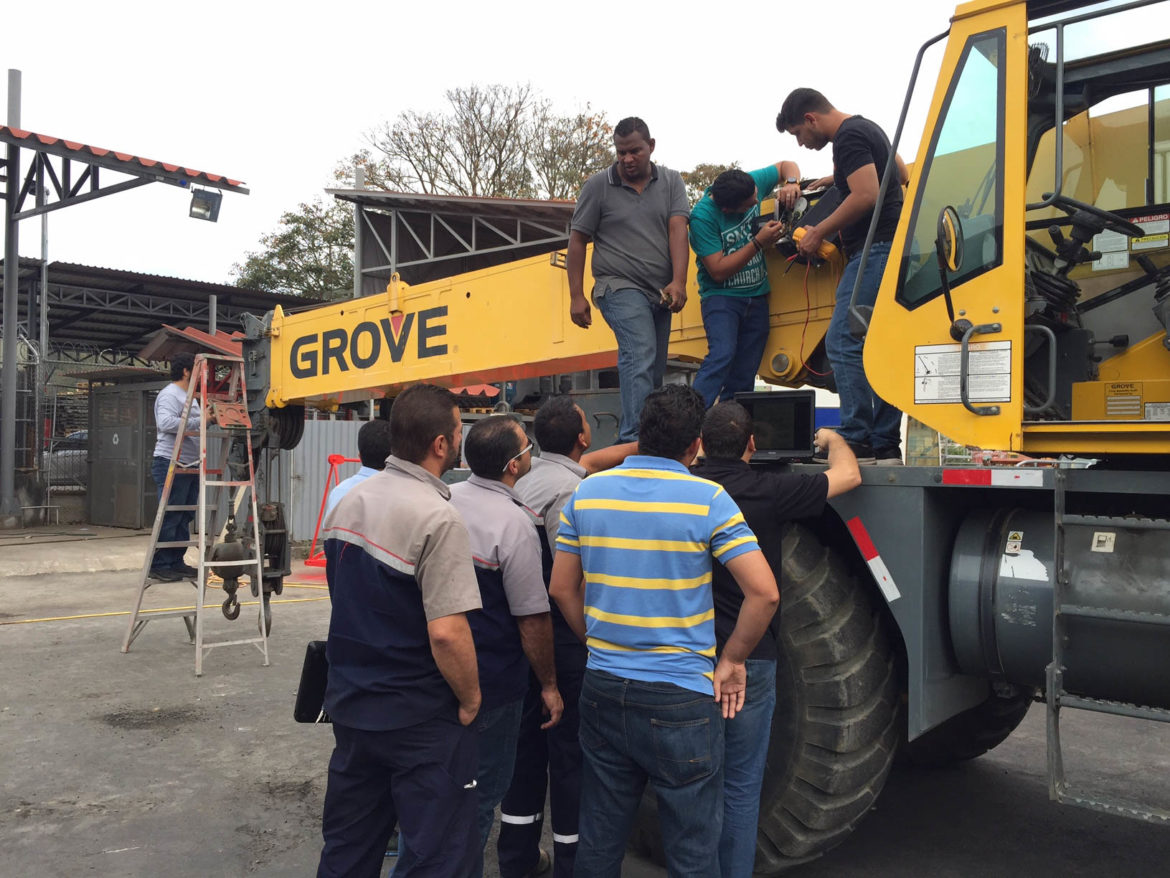Manitowoc Cranes has enhanced its aftermarket service quality in Central America and the Caribbean by expanding its Spanish-language Crane Care training programs. In the past, trainees had to travel to the United States and attend classes in English. Now, these courses give non-English-speaking technicians the ability to be trained in their native language and avoid high travel expenses.
According to Cuauhtemoc Flores, Manitowoc Crane Care’s director of customer service for the Mexican, Central American, and Caribbean (MCAC) regions, the training programs in Spanish aim to increase the representatives’ technical knowledge in strategic subjects in the region.
“When Manitowoc’s Crane Care training program was offered only in the United States, we had two barriers: the high costs for dealers to send over their technicians and the foreign language,” said Flores. “Thanks to the recent training sessions, these technicians are now more prepared and confident to provide even better customer assistance, which adds value to our aftermarket products.”
The latest two-week training sessions took place in April at Euromateriales, a Manitowoc dealer in Costa Rica. A group of 14 technicians who work for four Manitowoc dealers in the region—Euromateriales (Costa Rica), Akbar (the Dominican Republic), TecnoGrúas (Panama), and Nimac (Nicaragua)—attended the classes.
The technicians studied Manitowoc cranes’ systems and circuits, deepened their knowledge on hydraulic, electrical and pneumatic principles, and learned about troubleshooting procedures—particularly paying attention to Grove mobile cranes, the most used type of crane in the region. Classes also involved hands-on sessions that featured two, 30 t Grove rough-terrain models.
Manitowoc offered four training sessions in Mexico and five throughout Central America in 2016 for beginner and intermediate levels. The company’s goal is to improve on that number by offering even more training opportunities in 2017. Across the Americas, Manitowoc offers training sessions in three languages to meet local demand: English, Portuguese, and Spanish.

